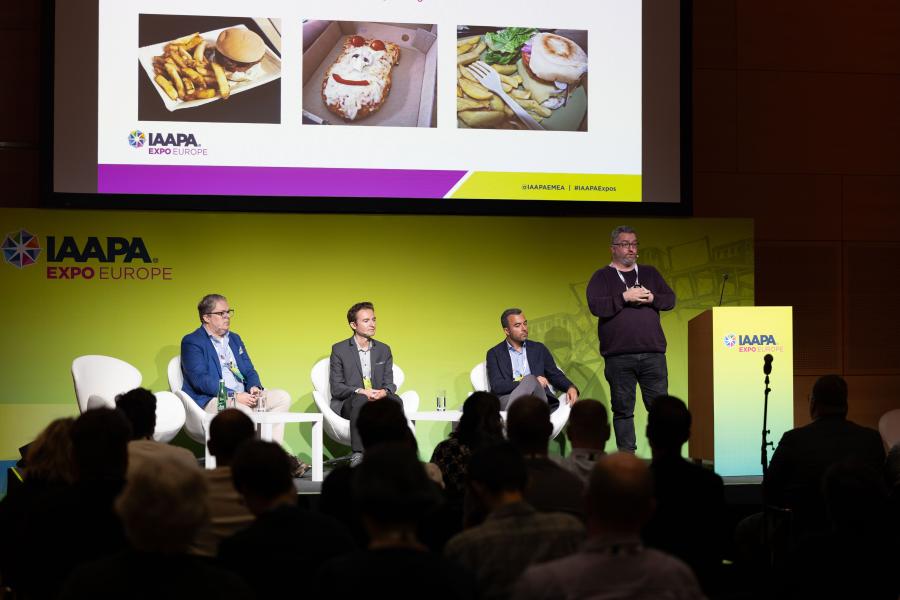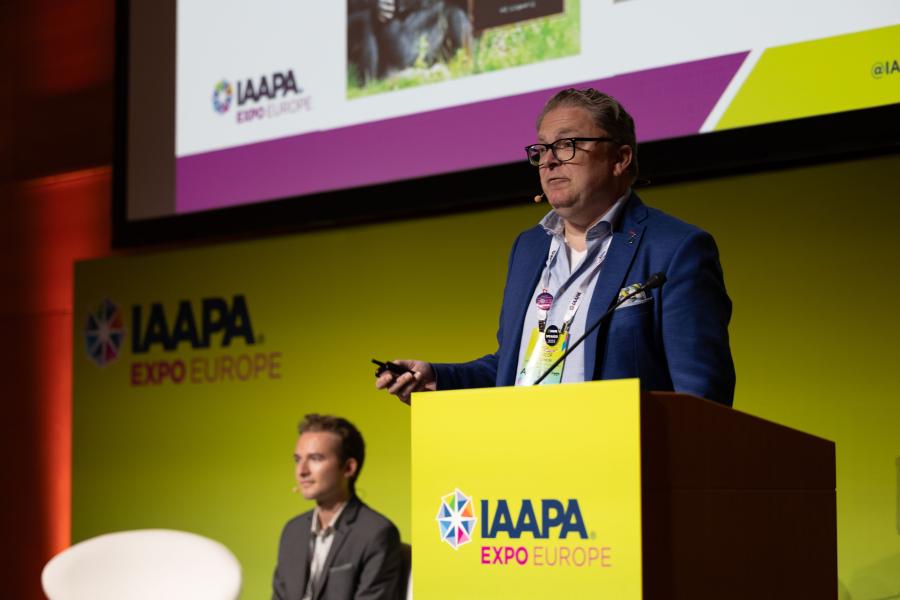Zoos and wildlife attractions are rapidly expanding their food options and experiences for guests, turning food and beverage (F&B) into its own attraction.
Filippo Saccà, chief marketing officer at Zoom Torino, gave IAAPA Expo Europe attendees a taste of what’s to come in a session titled “FooZ Ideas: Food at the Zoo.”
New F&B offerings often reflect a cultural shift within zoos. Simon Lockhart, F&B general manager at Chester Zoo in Cheshire, England, recalls how five years ago, “food was an ongoing consideration, but it was not integral to the overall experience—the primary experience was seeing the animals.”
Chester Zoo’s F&B provision was well regarded but wasn’t distinctive. That began to change in the summer of 2018 with the opening of The Oakfield, a contemporary British gastro-pub.
Creative Collaboration
One of the biggest shifts was brought about by the pandemic. Faced with economic pressures and hard choices, the team at the 90-year-old zoo had no choice but to innovate.
“COVID created conversation” between the animal teams and the commercial teams, Lockhart explains. That collaboration allowed new ideas to flourish. “What really worked for us was we reconnected with each other,” Lockhart says.
After reopening, Chester Zoo opened its first dining experience, Breakfast with Lions. Visitors are seated in front of the Asiatic lion habitat, enjoying breakfast before the zoo opens.
This summer, the zoo converted its historic stable block into The Square, a multimillion-pound wedding and events venue.
Sustainable Solutions
Chester Zoo values biodiversity and aims for guests to witness—and participate in—the foraging of foods that are served on its menus. This month, it has launched an exclusive, temporary menu in The Square with ingredients farmed and foraged from its estate.
“You won’t just walk into Chester Zoo; we’re going to take you to woodland copses and enclosed garden spaces where we’re hoping you can pick out edible ingredients and put your own canapes together,” Lockhart says.
“We feel that connecting food to our natural environment not only generates an understanding of sustainability, but it pulls people into the world we live in at the zoo.”
In the next few years, Chester Zoo will expand with on-site accommodations, offering views over giraffe paddocks. “Always connect your guests to nature,” Lockhart urges.
Chester Zoo, like many others, has been on a journey to understand what sustainability means for its operation. It has launched a Sustainable Palm Oil campaign, educating consumers to make informed choices.
Setting an Example
Goof Lukken, senior lecturer at the Breda University of Applied Sciences, drew the audience’s attention to a project at the Apenheul primate park in Apeldoorn, Netherlands. It partnered with Peeze and Peruvian farmers to harvest Lazy Monkey coffee in a way that protects the habitat of yellow-tailed woolly monkeys.
“From an experience point of view, Apenheul can tell people the story so everyone can understand they are doing more than protecting the animals in a zoo,” Lukken says. The park has also created children’s meal boxes that explain how primates eat.
He shared how Belgium’s Pairi Daiza park has created themed lands with accompanying cuisine, such as a Chinese pavilion with a Chinese buffet. Special events are another way operators can broaden their F&B offerings and appeal to different segments.
Many zoos worldwide also hold a Brew at the Zoo event to foster connection. “We must not forget that food is about socializing,” Lukken said.
Promoting Education and Fun
Maxime Van Kerckhoven, F&B consultant at The Food Imagineer, urged zoos to align their F&B offerings with their conservation initiatives. “It is a question of consistency and it is a powerful educational tool,” he said.
He shared a series of approaches for attraction operators wanting to elevate their F&B offerings sustainably. For example, he looked at foods with high volumes and high biodiversity impact, such as meat. He suggested sourcing from regional suppliers, asking about animal feed, conducting on-site visits, and seeking out sustainable food labels.
F&B can be fun, too. Van Kerckhoven highlighted the Insectivore Weekend at Zoo Praha in the Czech Republic, where guests can learn about insects and insect-eating animals, and sample dishes including fried crickets.
When done well, food can add flavor to your facility, become a new guest experience, tickle audiences’ tastebuds, and reinforce your brand values.



